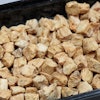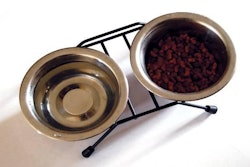A recent report discussed the grain-free diet trend in pet food, and what consumers need to know about the debate over whether to feed pets a grain-free diet.
Adolphe noted that grains are a source of complex carbohydrates which, although they are not considered essential nutrients for pets, play a critical role by providing a highly digestible, readily available energy source.
She cited a report, “The genomic signature of dog domestication reveals adaptation to a starch-rich diet,” in saying that one of the steps in the domestication of dogs was their adaptation to a high-carbohydrate diet relative to that of carnivorous wolves.
The report, “The glucose and insulin response to isoenergetic reduction of dietary energy sources in a true carnivore: the domestic cat,” was cited because it notes that moderate amounts of carbohydrates may be beneficial to promoting insulin sensitivity in cats.
“Alternative dietary fiber sources in companion animal nutrition” is a report mentioned by Adolphe that shows that beta-glucans in pet food may control blood glucose and prevent obesity.
Adolphe said that most grain-free pet foods are higher in protein than conventional diets, which can be harmful to pets with certain medical conditions such as kidney disease.
Peas, tapioca and potatoes were provided as examples of beneficial grain-free carbohydrate sources.
















